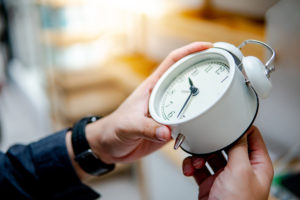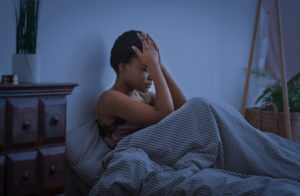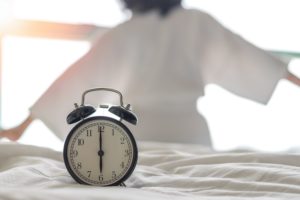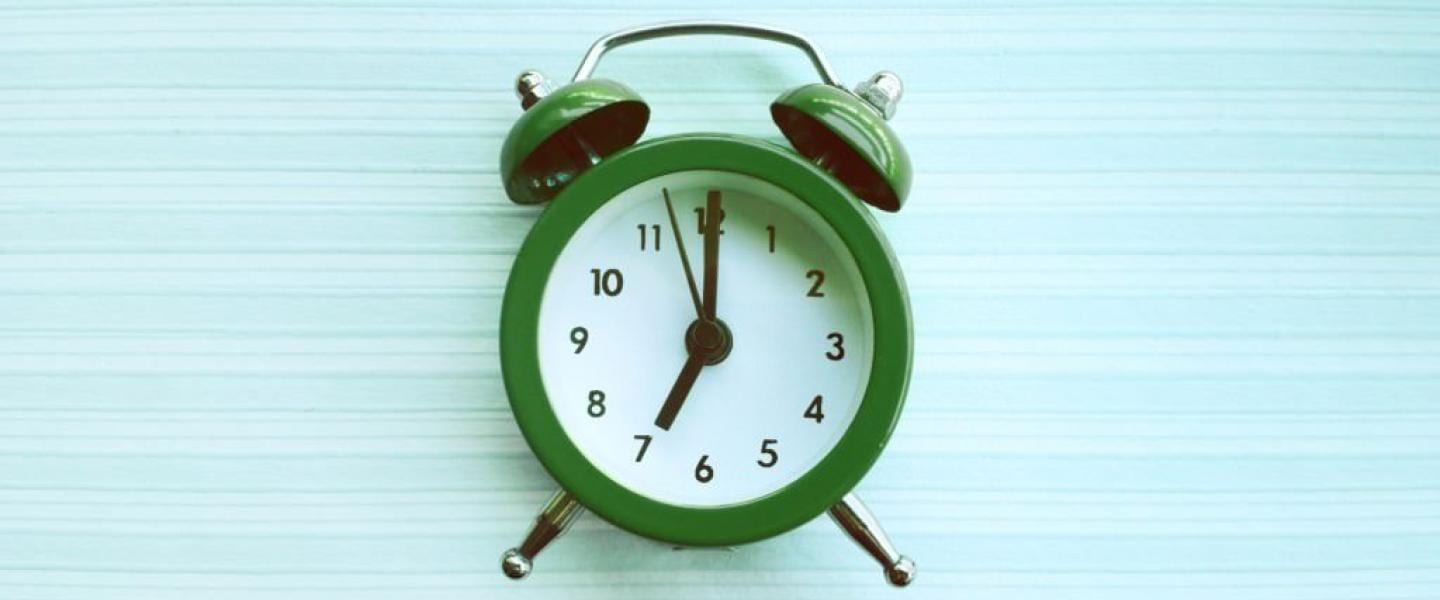How to Wake Up Without an Alarm – Our Best Tips
The best way to wake up without an alarm is to adjust the body’s circadian rhythm, the 24-hour clock that helps determine when a person feels sleepy or alert. Daily habits, like getting natural light exposure in the morning or keeping a consistent sleep schedule, can enable morning awakenings without a jarring alarm.
Waking up without an alarm can combat morning grogginess, improve mood, and reduce daytime drowsiness. Several practical steps can help adapt the body’s internal clock and make it possible to get up each morning without an alarm.
Harness the Power of Morning Light
Getting regular daylight exposure in the morning is one of the most potent ways to regulate your circadian rhythm. Morning sunlight helps the body coordinate its internal clock, which influences when you feel alert or sleepy.
Most experts recommend at least 30 minutes of daylight exposure every morning to help establish a sleep-wake cycle that is conducive to waking up without an alarm.
Natural light exposure is optimal, but some very bright lights can also be beneficial. When possible, waking up with the sunrise can ensure morning light exposure and eliminate the need for an alarm. Light therapy lamps with at least 10,000 lux of light are recommended when natural light exposure is not possible, especially in areas with dark winters.
Simulate Dawn
A dawn simulator or wake-up light can facilitate waking up without an alarm. These devices gradually increase bedroom illumination for 15 to 45 minutes before a set wake-up time.
Designed to mimic the sunrise, dawn simulators slowly nudge a sleeper toward awakening. One study found that dawn simulators improved alertness and cognitive function after waking up .
Keep a Consistent Schedule
Studies have found that self-awakening is more common in people who keep a consistent sleep schedule, so try to stick to a set bedtime and wake-up time.
When determining a schedule, budget enough time to get the recommended amount of sleep. Keep the same sleep schedule every day, including weekends.
Big swings in sleep timing can throw off sleep patterns. Insufficient sleep can also cause sleep debt to build up, which can make it hard to wake up early in the morning without an alarm.
“Your alarm can wake you up during the middle of a sleep phase, which can cause sleep inertia, or the groggy feeling from abruptly interrupted sleep.”
Dr. Lulu Guo, Sleep Physician
Dim the Lights Before Bed
Too much artificial light at night can delay circadian rhythms and make it more difficult to wake up early without an alarm. About two hours before bedtime, start dimming the lights and avoid bright light from TVs, mobile phones, and other screens.
Blue light exposure in the evening can be especially disruptive to sleep by suppressing Melatonin release which is a natural hormone that regulates our circadian rhythm. Blue light is usually from viewing screens such as TVs, phones or computer monitors. If use of these devices is needed in the evening, wearing blue light blocking glasses can help.

Avoid Sleep Disruptors
To maintain a regular sleep schedule, avoid things that can interfere with normal sleep.
- Caffeine: Because this stimulant stays in the body for several hours, it should be avoided in the late afternoon and evening.
- Alcohol: Alcohol can interfere with normal sleep stages, so limit or eliminate alcohol intake at night.
- Nicotine: Nicotine is a stimulant, which makes tobacco consumption before bed detrimental to sleep.
- Heavy meals: Eating a big dinner too late at night can lead to an upset stomach that throws off normal sleep. This can also trigger release of insulin late at night which can keep you up for longer or result in more disrupted sleep.
Nap Wisely
Keeping naps short and early in the day helps prevent them from disrupting evening sleep. As a general rule, naps should be less than 20 minutes and finish before 3 p.m.
Get Daily Exercise
Daily physical activity can contribute to more consistent and more restorative sleep, but intense exercise within two hours of bedtime may have a negative impact on sleep.
Be Patient
It can take time to establish a new sleep routine and adjust circadian rhythms, so try not to get discouraged if it is not possible to quickly begin waking up without an alarm.
We all have a natural circadian rhythm determining the ideal times to sleep and wake up. Some people naturally wake up earlier in the morning. Even with the same habits, people with an evening chronotype have a harder time altering their sleep schedule to wake up early without an alarm.

Still have questions? Ask our community!
Join our Sleep Care Community — a trusted hub of sleep health professionals, product specialists, and people just like you. Whether you need expert sleep advice for your insomnia or you’re searching for the perfect mattress, we’ve got you covered. Get personalized guidance from the experts who know sleep best.
References
2 Sources
-
Thompson, A., Jones, H., Gregson, W., & Atkinson, G. (2014). Effects of dawn simulation on markers of sleep inertia and post-waking performance in humans. European Journal of Applied Physiology, 114(5), 1049–1056.
https://pubmed.ncbi.nlm.nih.gov/24509892/ -
Ikeda, H., & Hayashi, M. (2012). Longitudinal study of self-awakening and sleep/wake habits in adolescents. Nature and science of sleep, 4, 103–109.
https://pubmed.ncbi.nlm.nih.gov/23620684/
















